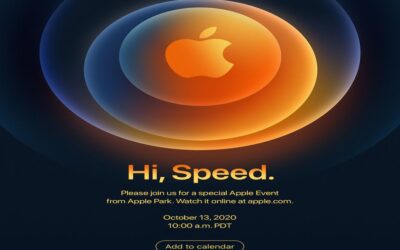Phone network Three stopped working on Wednesday, with a rush of users complaining they were unable to get online.The problems have since been resolved and the network is back online.Users right across the UK complained of problems with the network, according to tracking website Down Detector, which saw a surge of problems just after 9am local time.The network had initially said that it was aware of the problem and that it was working to fix it, noting that the issue had come at a particularly difficult time“We are aware of an issue with the network and are working hard to fix it,” a Three UK spokesperson said. “We know how vital communications are at the moment and are sorry for any inconvenience caused.”It later said that the issue had been fixed.“Three’s services have now been restored for affected customers,” a spokesperson said. “We apologise for any inconvenience caused by the issue.”Three’s support account replied to some affected users asking them to switch their phone on and off in an attempt to restart it, but had not shared any public information about any possible outage.Checking the network status on Three’s website showed a warning that there may be issues, when entering a whole variety of postcodes from across the country.The note indicated that there could be “disruption”, because “engineers are working on masts nearby, which means the rest of our network is handling more traffic than usual”. It is not clear whether that warning was related to the more general outage.
The Independent Articles
Tesla hacker discovers mysterious driver-facing camera’s purpose
A camera situated on the rear-view mirror of thousands of new Tesla cars may be a monitoring whether drivers are using their phones or otherwise distracted when behind the wheel, a hacker has revealed.Tesla CEO Elon Musk previously claimed that the camera would be used to prevent vandalism in future self-driving taxis, however the latest revelation appears to show that it is instead for monitoring human drivers.The hacker, known as ‘green’, discovered a series of key words within the electric car’s software, suggesting it detects a driver’s actions in the moments leading up to an accident in order to determine a cause.These words include: ‘Blinded’, ‘eyes closed’, ‘phone use’ and ‘head down’.The camera comes with every new Tesla Model 3 and Model Y, though when they were first introduced three years ago Tesla said they would remain inactive until a future software update.Watch moreIn April, a Twitter user speculated that the camera would be used in “robotaxis” to prevent passengers from damaging the car when there is no human driver present.“If they vandalise your car, it’s on camera and they’ll pay for the damage and possibly get charged criminally,” Twitter user Marty Tee said.Musk responded: “Correct.”
iPhone 12 release date: Apple announces launch of new handset with 'Speed' themed event
Apple has announced the launch date of the new iPhone 12.It will show off the phone at an event on 13 October, at 10am local pacific time, it said in an invitation.Normally, Apple’s phones are put on sale a week and a half after they are revealed, which would suggest that the phone would be released around 23 October. But this year has seen the company deviate from its usual schedule, and the release date could be changed accordingly.The only indication of the nature of the event was a message reading “Hi, Speed”. That could be a reference to the extra internet capabilities provided by the first 5G iPhone, the power of the new chips that are expected to arrive, something else entirely – or nothing at all, since Apple invitations are notoriously teasing in their wording.It did also include an illustrating showing concentric circles, and an orange and blue colouring. The colours could be an indication of the new hues that are expected to be introduced with the new iPhones – though, again, they could mean nothing at all.
Gmail gets entirely new logo with 'Google Workspace' Gsuite rebrand
Nine in 10 adults think buying latest smartphone is ‘waste of money’, report shows
Nearly nine in 10 adults think buying the latest smartphone is a “waste of money”.Research polling 2,000 Britons revealed more than half are “bored” of trying to keep up-to-date with the latest tech.And three in four are no longer willing to pay a fortune to get it.As a result, almost a third intend to spend less on smartphones and other gadgets over the next two years.Almost three quarters also claimed they are content with buying cheaper, older models, while half will purchase refurbished or second-hand tech in order to save money.Read moreThe research was commissioned by musicMagpie as figures from its Annual Phone Depreciation Report found mobile phones can lose up to 68 per cent of their original purchase value in the first six months.Liam Howley, from musicMagpie, said: “With mounting prices and an increasing number of new releases, it’s become really challenging for people to keep up with the latest tech.“As the research shows, consumers are tired of the expense of new tech, being told ‘you need this now’ and being expected to meet the hefty price tag.”The study also found 62 per cent even feel “forced” to buy the newest release because the lifespan of tech has decreased.And eight in 10 don’t like feeling pushed by manufacturers to keep up with the times – opting to get their tech as and when they need it instead.Read moreA further 72 per cent will avoid newer types of tech as they believe there’s a tendency for them to have bugs.But four-fifths of those polled even admitted they can’t really see the difference between older models compared to newer ones.The study, conducted via OnePoll, found 42 per cent also find it difficult to learn how to use new tech and would rather stick to what they’re familiar with.So when the new iPhone hits the shelves, 42 per cent won’t bat an eyelid – with just 10 per cent “excited” for the latest release from the brand.It also emerged 62 per cent of adults are concerned about the impact the constant churn of new tech releases is having on the environment.
Facebook deletes Trump post falsely claiming flu more deadly than Covid
Facebook has removed a post by Donald Trump in which he falsely stated that Covid-19 is less dangerous than the flu.The long post broke Facebook’s rules on coronavirus misinformation, the company said.The same post remains live on Twitter, though it has been placed behind a warning indicating that it could be dangerous. Users have to click on a link to confirm they want to view the tweet before they are able to read the text.“This Tweet violated the Twitter Rules about spreading misleading and potentially harmful information related to COVID-19,” the warning reads. “However, Twitter has determined that it may be in the public’s interest for the Tweet to remain accessible.”In the post, Mr Trump had suggested that the flu could be less lethal than covid, and appeared to suggest that further lockdowns would be mistaken as a result.While the flu continues to prove fatal in large numbers, covid-19 has a considerably larger fatality rate than flu. Mr Trump also included false claims suggesting that the death rate from the flu is “sometimes over 100,000” – but the last time that many Americans died as a result of influenza was in 1968, during a major pandemic.Read more“Flu season is coming up! Many people every year, sometimes over 100,000, and despite the Vaccine, die from the Flu,” he wrote. “Are we going to close down our Country? No, we have learned to live with it, just like we are learning to live with Covid, in most populations far less lethal!!!”Both Twitter and Facebook have struggled to deal with both coronavirus misinformation and potentially misleading or inflammatory posts by Donald Trump. Each has rolled out new policies in an attempt to deal with both, though they have continued to receive criticism.Twitter has repeatedly argued that Mr Trump’s posts will sometimes be exempted from otherwise stringent policies, both on misinformation and other issues, as a result of his newsworthiness.The company did remove one of Mr Trump’s tweets on Monday, and replaced it with a message indicating that it had been deleted for violating Twitter’s rules. That appeared to be a result of the president including the email address of a New York Post columnist whose article he had shared.
Earth is not the best place to live, scientists say
Earth is not necessarily the best planet in the universe for life, a new study has found.Researchers have found some 24 planets that are “superhabitable”, offering conditions more suitable for life than they are here on Earth.And some of them even have better stars than our own Sun, the researchers said.The new study looked for worlds that would be even more likely to foster life than our own – including those that are older, bigger, warmer and wetter than Earth – in the hope of informing future searches for life elsewhere in the universe.The study identified 24 of the “superhabitable” planets. They are all 100 light years away, making them difficult if not impossible to ever see up close, but research with future telescopes could give us much more information about those worlds.With technological developments on board upcoming telescopes – such as NASA’s James Webb Space Telescope, the LUVIOR space observatory and the European Space Agency’s PLATO – researchers hope they may even be able to spot the signatures of life on distance planets.Watch more”With the next space telescopes coming up, we will get more information, so it is important to select some targets,” said Dirk Schulze-Makuch, a professor at Washington State University and the Technical University in Berlin, who led the study.”We have to focus on certain planets that have the most promising conditions for complex life. However, we have to be careful to not get stuck looking for a second Earth because there could be planets that might be more suitable for life than ours.”Researchers identified a host of possible criteria for such superhabitable planets. They then looked through the 4,500 known planets outside of our solar system that have been found, in an attempt to identify which could have those important criteria.That included looking for planets “K dwarf stars”, which are not like out sun. Those similar to our star – known as G stars – only have a relatively short lifespan, and given the Sun was almost half its age before any form of complex life arrived, many other similar planetary systems could die out before they are inhabited.K dwarf stars, by contrast, are cooler, smaller and brighter than our sun. They also stay around for much longer – up to 70 billion years – meaning that the planets around them would have much more time to develop advanced life, too.They also looked for planets that are about 10 per cent larger than Earth, with the idea that they are likely to have more habitable land. More mass would also mean that they would keep their interior heating longer, and stronger gravity to keep hold of its atmosphere for more time.Superhabitable planets would also likely have a little more water than Earth, especially if it was kept as moisture. Being slightly warmer would also make a planet more habitable, with an ideal of about 5 degrees Celsius hotter than Earth thought to be the biggest improvement.None of the 24 planets described in the study have all of the criteria, despite the vast number to choose from. But one of them has four of those criteria, meaning that it would theoretically be much more accommodating to life and more likely to be inhabited.”It’s sometimes difficult to convey this principle of superhabitable planets because we think we have the best planet,” said Professor Schulze-Makuch. “We have a great number of complex and diverse lifeforms, and many that can survive in extreme environments. It is good to have adaptable life, but that doesn’t mean that we have the best of everything.”
Mars to be brighter than it has been in nearly 20 years
Mars will make its closest approach to Earth in more than two years this month, as it reaches its point of opposition in the night’s sky.Nasa has described the red planet’s appearance as “effectively a ‘full’ Mars”, offering the best chance to view our planetary neighbour in nearly 20 years.On Tuesday, 13 October, Mars will shine brighter than it has since 2003 and will not appear like this again until 2035.Mars reaches opposition every 26 months, meaning Earth passes directly between the Sun and Mars.October’s opposition will be extra special due to the orbits of Earth and Mars lining up to be at their closest to each other.Read moreThe astronomical phenomenon will see Mars rise as the Sun sets, and set as the Sun rises.Combined with a new moon ‘supermoon’ in the middle of the month, it will give both casual skygazers and seasoned astronomers a rare chance to view Mars at its most spectacular.With the naked eye, Mars will appear brighter and more distinguished in the night’s sky, while with a telescope it will be easier to make out features like polar caps and volcanoes.The researchers said the discovery could be the key in the search for alien life, as living organisms require liquid water to survive.
Mars rover Curiosity finds evidence of ancient fast-moving streams on surface of red planetShow all 2
Slack down: App not working as company rushes to find fix for bug that makes messages slow to send – if they appear at all
SpaceX scrubs launch of Elon Musk's controversial Starlink mission once again
SpaceX has once again scrubbed the launch of its latest Starlink mission.It was the fourth attempt to deliver a batch of 60 satellites into low-Earth orbit as part of Elon Musk’s controversial plan to beam high-speed internet down to Earth.“We are standing down from today’s Starlink mission due to weather violations on the Range,” SpaceX tweeted. “The team is setting up for a launch opportunity at 7.29am EDT [12.29pm BST]; weather forecast is 70 per cent favourable for liftoff.”The latest launch will bring the total number of Starlink satellites in orbit close to 800, with thousands more planned for 2021.The satellite constellation has faced heavy criticism from the astronomy community, who claim that they interfere with observations.In August, hundreds of astronomers warned that Starlink’s network could prove “extremely impactful” to science programs and hinder scientific progress.








